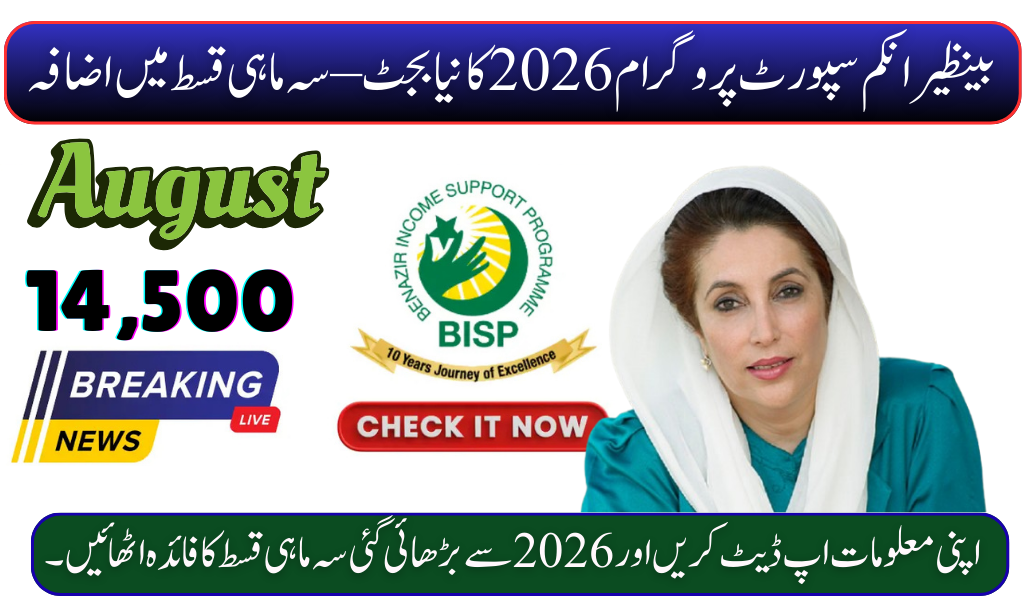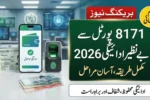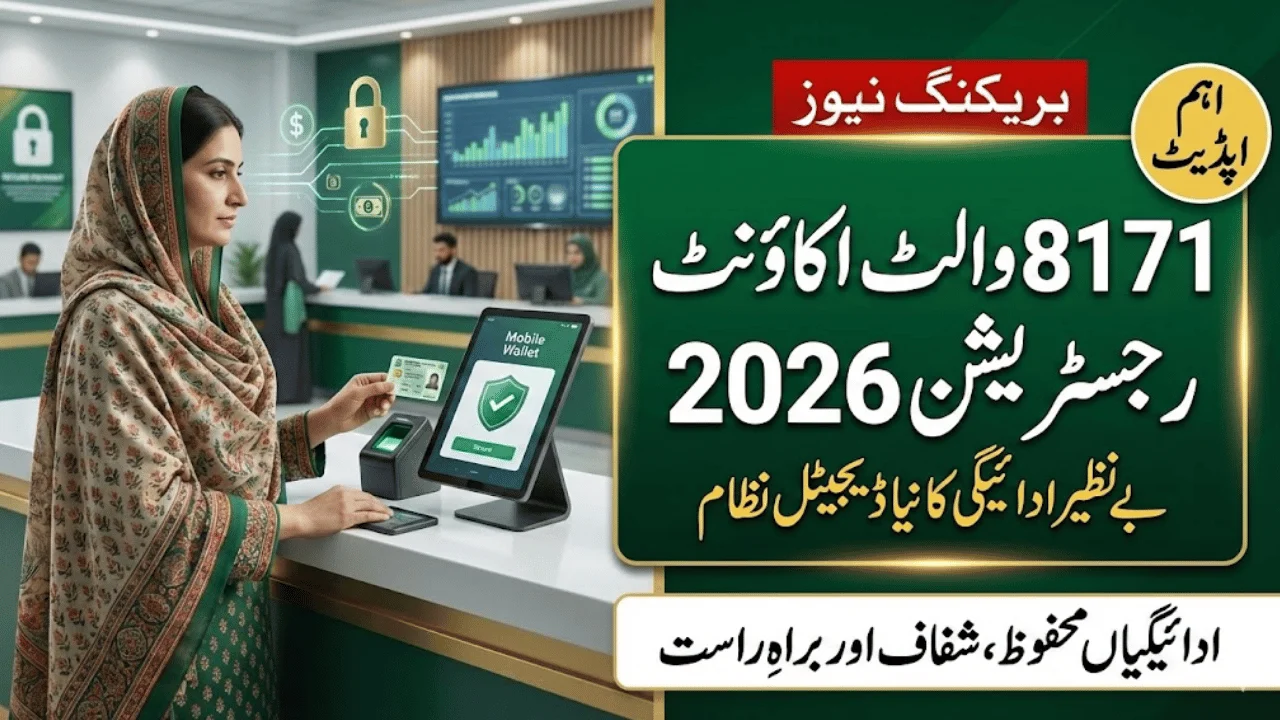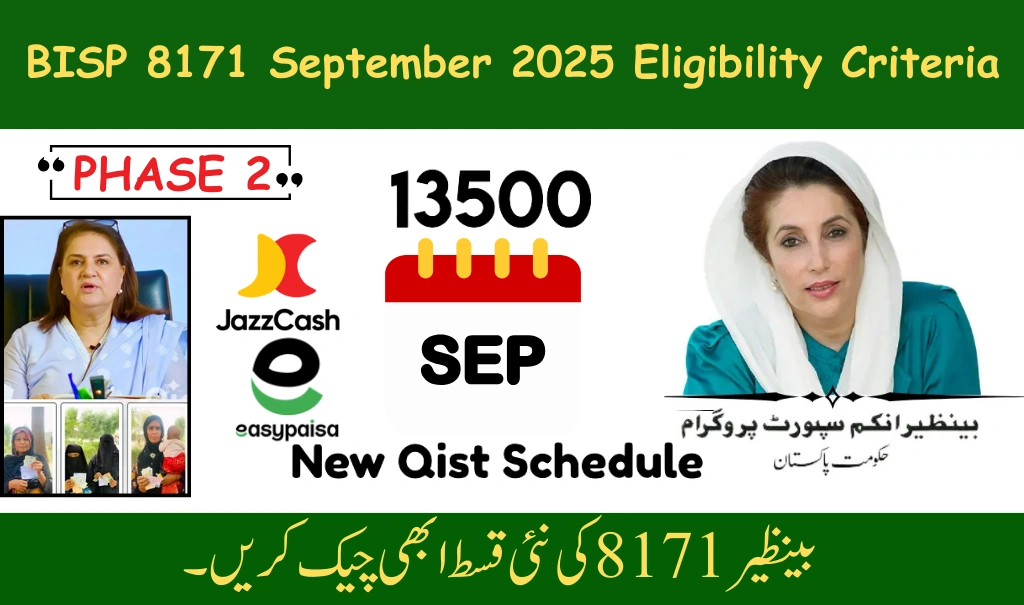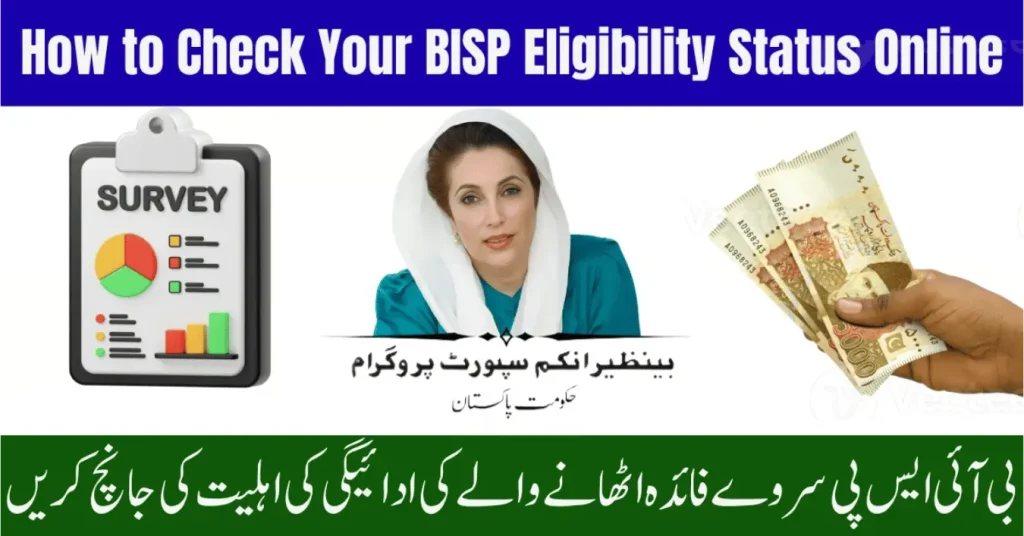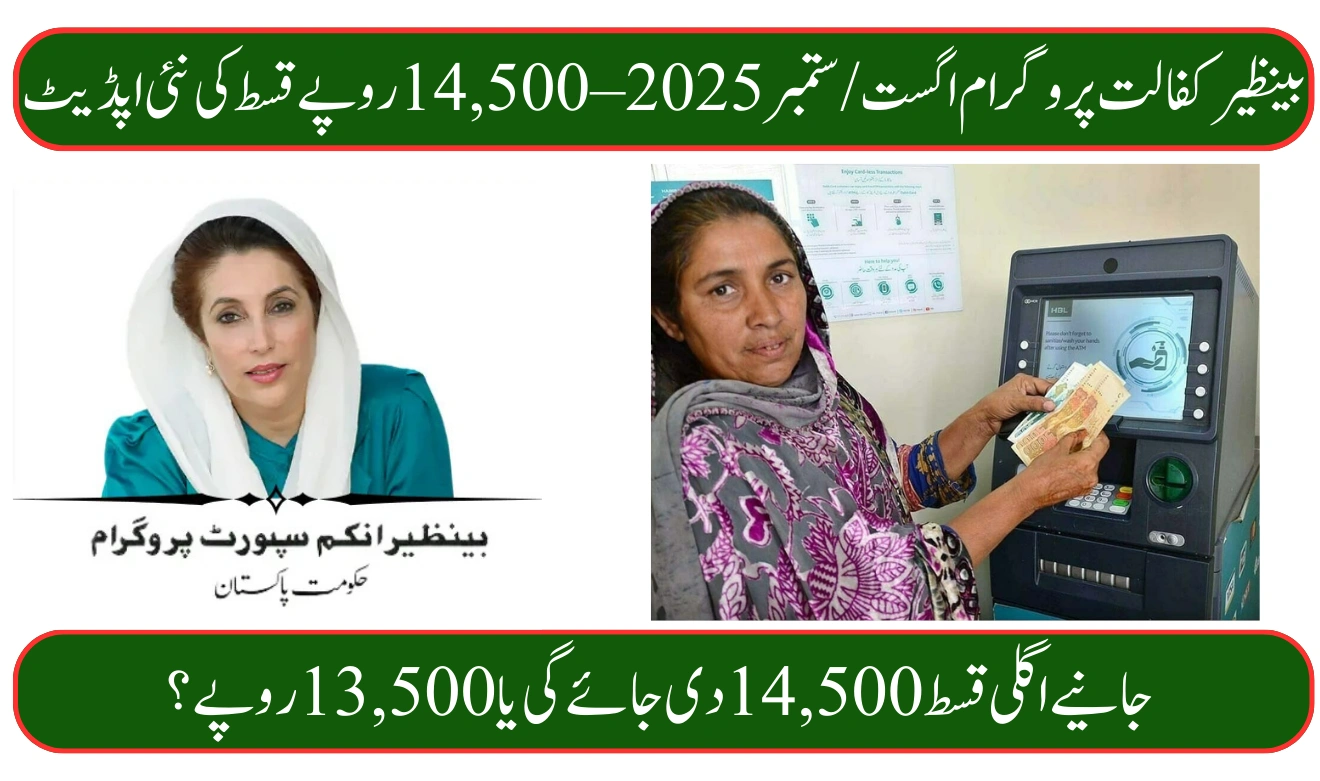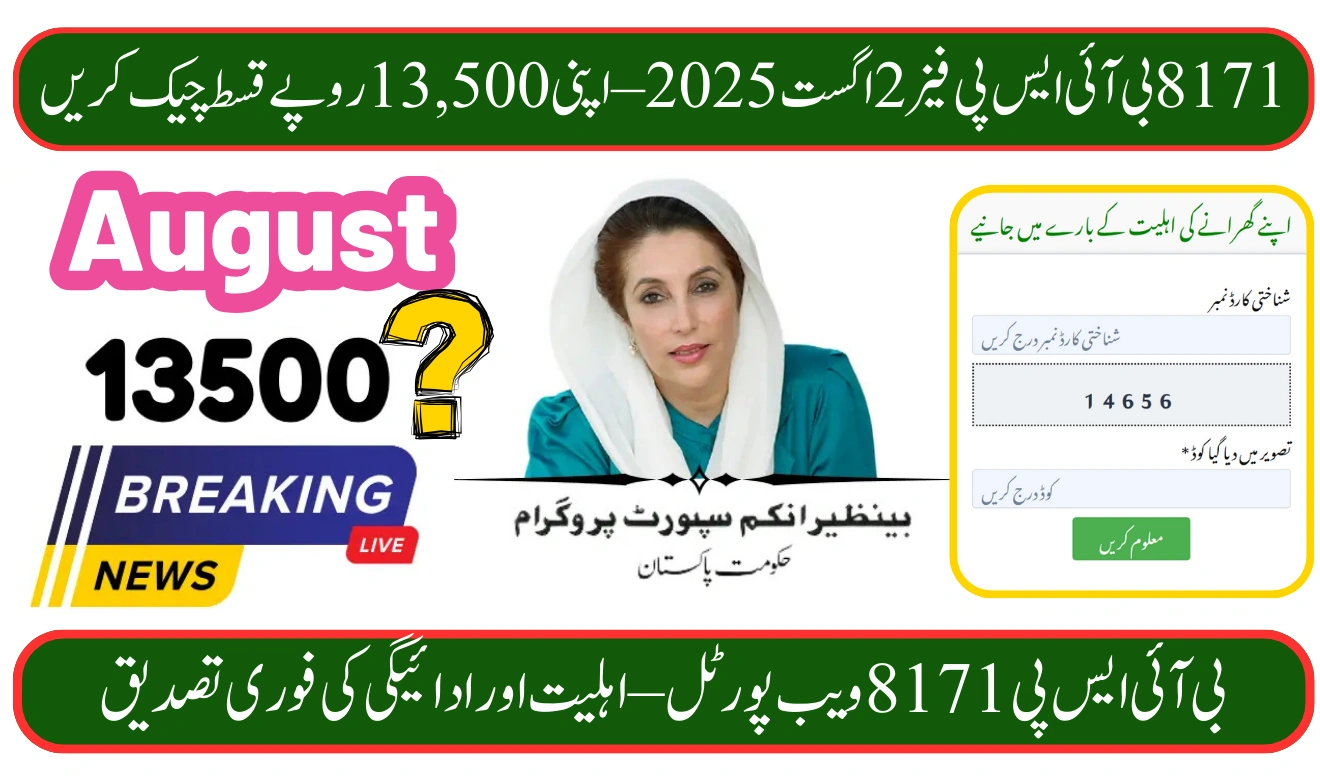The Government of Pakistan has put forward a proposal to significantly increase the budget for the Benazir Income Support Programme (BISP) starting in January 2026. If approved, the annual allocation will grow by 20%, from approximately Rs 592 billion to Rs 716 billion. This plan also includes a Rs 1,000 increase in quarterly stipends, raising payments from Rs 13,500 to Rs 14,500 for millions of eligible families.
The move is aimed at helping low-income households cope with rising living costs, improving their quality of life, and expanding the programme’s coverage to reach more families across Pakistan.
A Quick Look at BISP
Launched in 2008, BISP is the country’s largest social protection initiative, providing regular financial assistance to vulnerable families — with women as the primary recipients. Key components of BISP include:
-
Kafaalat: Unconditional cash transfers every quarter.
-
Waseela-e-Taleem: Incentives to keep children enrolled in school.
-
Nashonuma: Nutrition and health support for mothers and infants.
-
Emergency Cash: Special aid during natural disasters or crises.
Over the years, the programme has grown into a cornerstone of Pakistan’s poverty reduction strategy.
Highlights of the 2026 Budget Proposal
If the proposal is implemented, here’s what beneficiaries can expect:
-
20% Budget Hike: Annual funding to rise to Rs 716 billion.
-
Increased Stipend: Quarterly payments to increase to Rs 14,500.
-
Expanded Coverage: Over 10 million households to benefit.
-
Implementation Date: New payments start January 2026.
-
Stronger Support: More funds for education, health, and nutrition-based conditional cash transfers.
Why the Increase is Necessary
Several factors have influenced this decision:
-
Rising Inflation: Food, fuel, and transport costs have increased sharply, reducing the value of existing stipends.
-
Poverty Reduction Goals: Higher payments will help families meet basic needs and move closer to the poverty line threshold.
-
Economic Stability: Social protection programs like BISP help maintain peace and reduce unrest during financial instability.
-
International Support: Global partners, including the World Bank and IMF, have encouraged Pakistan to strengthen its welfare safety net.
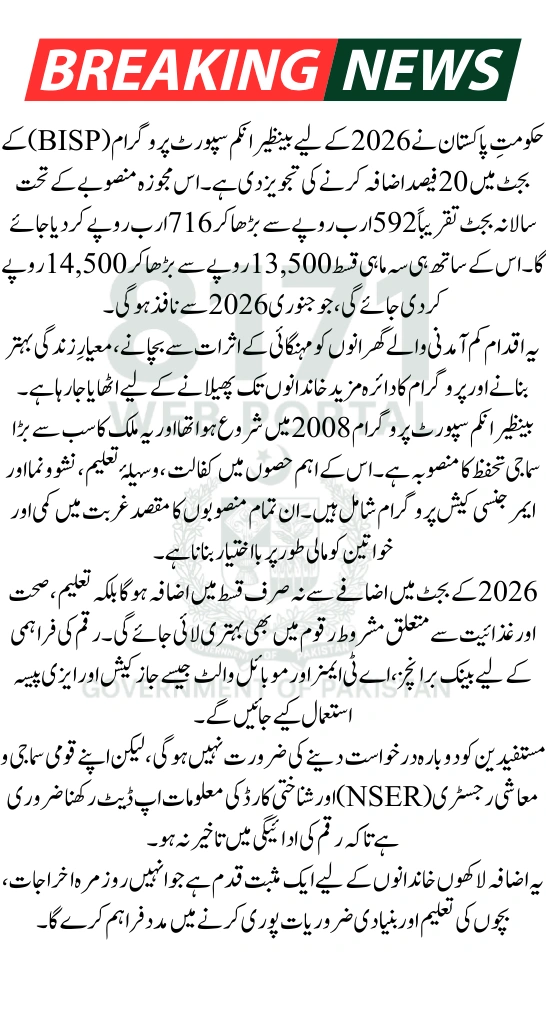
Who Will Benefit?
The revised budget will provide extra support to:
-
Women-led households with no or minimal income.
-
Rural families affected by seasonal unemployment.
-
Urban low-income workers struggling with high costs.
-
Families with school-going children benefiting from education incentives.
-
Mothers and newborns enrolled in nutrition programmes.
How Payments Will Be Delivered
Beneficiaries will not need to reapply. Those already registered in the BISP system will automatically receive the updated amount, provided their records are current. Payments will be accessible through:
-
Bank branches
-
ATMs
-
Mobile wallets (JazzCash, Easypaisa)
-
BISP payment centers
Updating your National Socio-Economic Registry (NSER) and CNIC details is essential to avoid payment delays.
Projected Impact on Families
An additional Rs 1,000 per quarter can make a big difference for low-income households, helping them buy basic groceries, pay for school supplies, manage utility bills, or afford basic medical care. With conditional cash transfer bonuses, overall yearly assistance could increase by 12–15%.
Key Reforms in 2026
The proposal also includes improvements in service delivery:
-
Multiple bank partnerships for easier access.
-
Enhanced biometric verification to reduce fraud.
-
Public dashboards for transparent payment tracking.
Conclusion
If approved, the BISP 2026 budget increase will be a major step toward protecting Pakistan’s most vulnerable citizens from the effects of inflation. With higher payments, wider coverage, and better delivery systems, this initiative promises real financial relief and long-term social benefits.
For beneficiaries, the best way to prepare is to keep your information updated and rely only on official BISP channels for announcements. This expansion could be a turning point in strengthening Pakistan’s welfare network and promoting economic stability.
